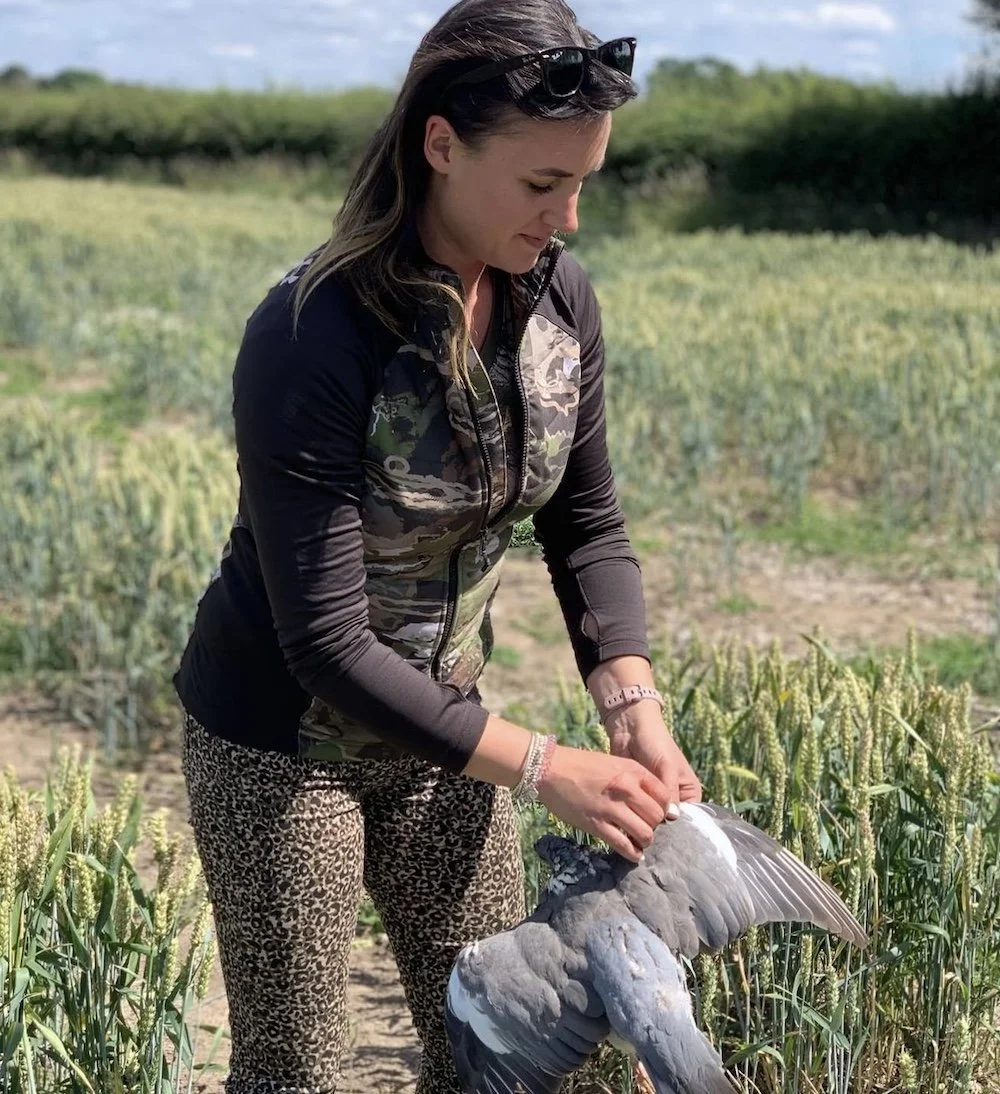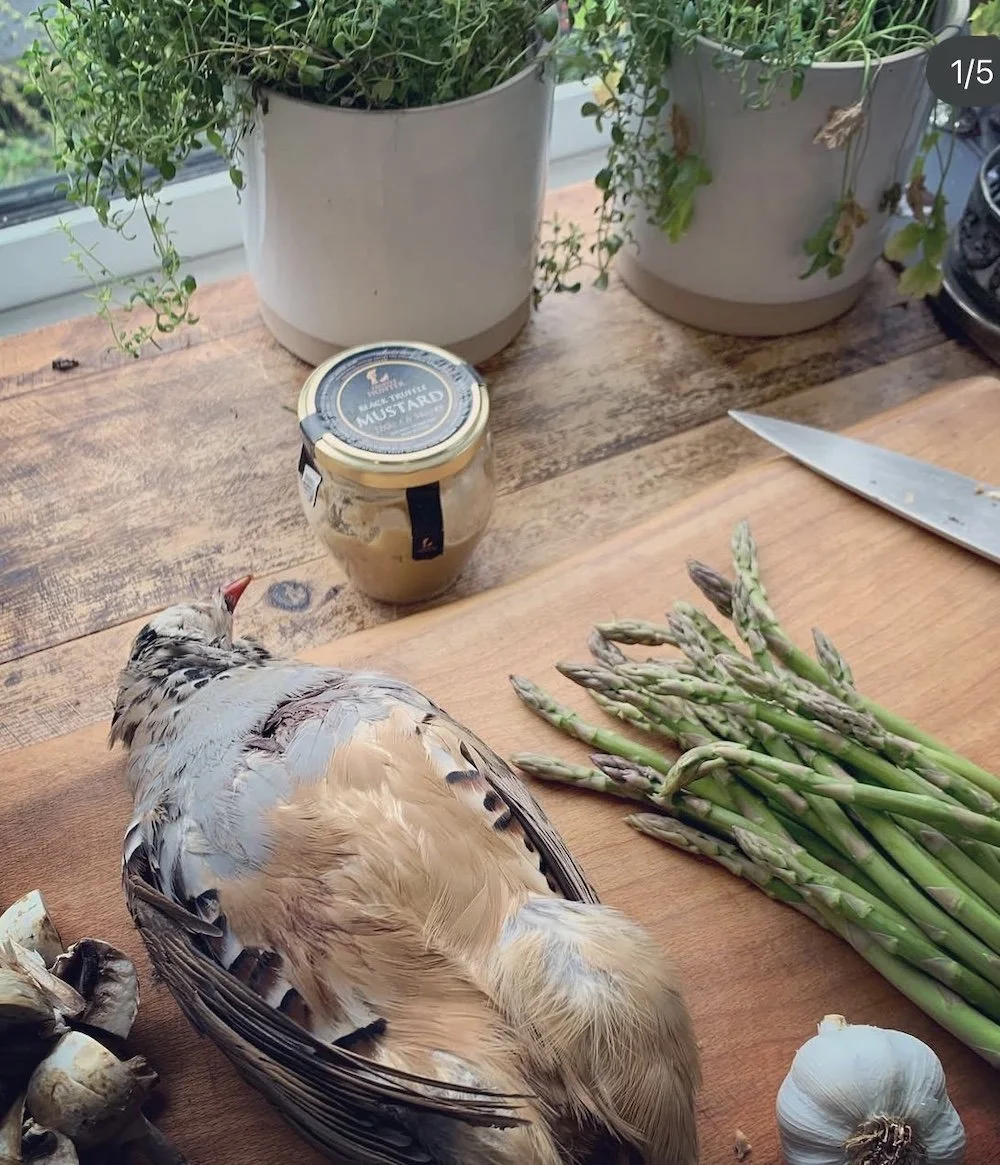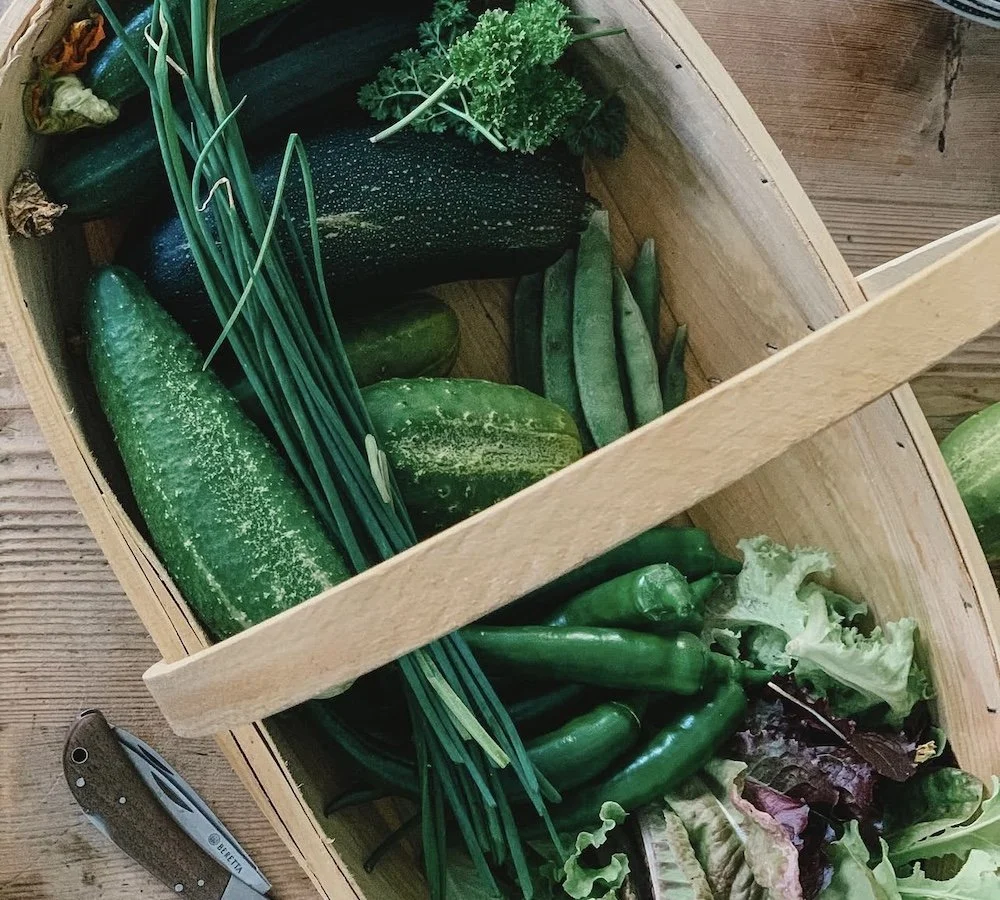Field to fork: why hunting is the ultimate ethical connection to food
There’s something deeply grounding about walking into the wild with purpose. Rifle in hand, boots on the earth and an awareness of every sound around you.
It’s a return to something ancient, something honest, and it connects you to nature in a way that you can only truly understand if you experience it.
For me, hunting and having a ‘field to fork’ approach is not just a sport or a lifestyle, it’s a relationship. One that ties me to the land, to my food and to my values.
We live in a world incredibly disconnected from what we eat. While I believe there has been a growing tide-change over the last decade (which I’m putting down to the rise in gardening as a result of Covid and an awareness of ultra processed foods aka UPFs) most meat and fish is still plastic wrapped and anonymous. Supermarket aisles don’t tell the story behind the food. It’s just there, constantly available and without any traceability. But when you take responsibility for your own meat and grow your own vegetables, fruit and herbs, you understand food in a way that’s impossible to ignore.
And yes, as a woman and a mother, that relationship matters even more to me. Every animal I harvest is treated with reverence. I know where it lived, what it ate, how it moved. I know the effort it took to earn that meat both physically and emotionally. And that’s what makes it ethical - nothing is wasted and nothing is taken for granted.
Hunting is the most honest way to eat meat
I’ve had conversations with people who are deeply uncomfortable with the idea of hunting but think nothing of eating factory-farmed chicken or mass-produced beef that’s been shipped in from the other side of the world.
It’s not a judgment; it’s just a disconnect. Why is one acceptable but the other one not? Why is an avocado to be applauded, but locally sourced, in-season meat not celebrated? Why is there an over-reliance on shop bought but ‘field to fork’ is seen as so unusual?
We’ve become conditioned to keep meat consumption sterile, clean and distant. Hunting is the polar opposite of this narrative: it’s raw, real and deeply respectful.
Conservation starts with connection
Many people are surprised to learn hunting supports conservation. Being inherently connected to flora and fauna means that hunters protect habitats, manage populations and fund conservation efforts. When we harvest sustainably and respectfully, we’re helping to maintain healthy ecosystems for wildlife, farming and future generations.
I want my son to grow up in a world where he understands the balance of nature, the role we play in it and that we are mere stewards for our time on this planet.
From wild to plate: the ritual of cooking game
So, in the same way I’m excited to cook the carrots and peas I’ve grown in the garden with my own bare hands, there’s an immense pride in serving up a meal that you’ve sourced from start to finish. Whether it’s wild venison slow-cooked with homemade blackcurrant jelly, or pan-fried partridge breast marinated with herbs from the garden, it tastes richer, deeper and more meaningful.
While this blog is focussing on my ‘why’, I understand not everyone will want to pull the trigger. If that resonates with you then you can still enjoy sustainable meat by speaking to your local butchers, looking online for game and venison deliveries that can provide straight to your door, prioritising the meat in the game section of your supermarket and, if you are slightly rural, you can try asking in your local community for who manages the deer population locally. (NB. Once the ‘Little Camo Book’ section is up and running I’ll provide more information on this!)
Why I share this with my family - and why you should too!
Hunting teaches patience, humility and awareness. It demands compassion not only for the animal itself but for its surroundings and mother nature. It builds resilience, respect and a connection to nature that you cannot experience in any other way. You see the seasons and daily weather differently. You understand the delicate balance of ecosystems. You notice the birdsong, the wind direction, the snap of a twig, the moonrise… And hunting also instills values, which, as a mum I’m trying to pass on to my son, as generations did before.
History books may have focused on men in the field, but archaeology paints a different picture. In many ancient cultures, women - mothers - hunted, tracked and provided food for their communities. So while the women’s shooting, fishing and hunting demographic continues to be the fastest growing globally; this isn’t new, it’s a return to our roots.
Being a mother doesn’t erase the instinct to provide. For me, it has sharpened it and given me a new focus. I want to nourish my little family with food that’s meaningful, ethical and responsibly sourced. Hunting my own meat allows me to do just that. It gives me control over what I bring into my kitchens and, when my little boy is helping to prepare his meal from a bird in the feather, it’s teaching my son that meat doesn't just come from plastic packaging!
Our children model what we embody, not what we say. When they see their parents outdoors, present, confident, and capable, it gives them permission to do the same. We need our children to become better stewards of our land and oceans than we have been to date. We’ve got the balance all wrong and it’s the next generation who will pay the price for that, unless we can correct this and work with nature (rather than destroy it) for the sake of instant, anonymous and continuous supply of produce.
Field to fork trend or core value?
A field to fork lifestyle should be celebrated because it’s everything modern life often isn’t: it’s intentional, sustainable and requires accountability. In a world of convenience and disconnection, choosing to source your food from the land - whether through hunting, fishing, foraging or growing - is an act of integrity and empowerment. In a society dependent on fast food and fast answers, knowing how to feed yourself from the land is a form of resilience. It builds practical skills such as fieldcraft, cooking, and foraging. It provides a constant and broad education in science. It develops a plethora of mental skills like patience, observation, responsibility and being able to remain calm under pressure. It will also keep people fit and is the best form of mindfulness.
Field to fork isn’t about being perfect. It’s not elitist, or exclusive, or even always practical for everyone 100% of the time. Every part of the process forces you to slow down; it’s not instant and that’s the beauty of it. A field to fork lifestyle trains you to be more in tune with nature’s rhythm.
It’s a mindset and celebration of doing things with care and consciousness. In a noisy, throwaway world, field to fork is a quiet rebellion.
It’s not just a trend, it’s a philosophy and way of life.
And it tastes better, too.
By
Claire Sads








